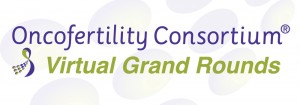 On May 16th, Richard Anderson, PhD, MD will be delivering an Oncofertility Virtual Grand Rounds entitled, “Female Fertility Preservation in Practice: Where We Are, and How We Got Here.” Dr. Anderson is a consultant at the Royal Infirmary of Edinburgh and a Professor of Clinical Reproductive Science at the University of Edinburgh. He specializes in infertility and reproductive endocrinology with particular interests in disorders of ovulation in women and male reproductive function. His presentation is a highly anticipated event at the Consortium and asks us to reflect on the impact the Oncofertility Consortium has had on fertility preservation in cancer patients over the last five years.
On May 16th, Richard Anderson, PhD, MD will be delivering an Oncofertility Virtual Grand Rounds entitled, “Female Fertility Preservation in Practice: Where We Are, and How We Got Here.” Dr. Anderson is a consultant at the Royal Infirmary of Edinburgh and a Professor of Clinical Reproductive Science at the University of Edinburgh. He specializes in infertility and reproductive endocrinology with particular interests in disorders of ovulation in women and male reproductive function. His presentation is a highly anticipated event at the Consortium and asks us to reflect on the impact the Oncofertility Consortium has had on fertility preservation in cancer patients over the last five years.
One of the many important resources provided by the Oncofertility Consortium is the National Physicians Cooperative (NPC): a nationwide network of Fertility Preservation sites that are strongly aligned with cancer centers serving children, men and women. The NPC was built to teach fertility specialists about the specific needs of cancer patients. These needs include an immediate need for fertility preservation in a short amount of time, patients that include adolescents and children, and treating individuals who may experience fertility complications from the cancer itself or due to treatment. NPC sites are trained to provide individualized consultations and interventions for fertility preservation options. They also advance clinical care by participating in multicenter studies designed to improve fertility preservation methods and care delivery. When patients choose ovarian tissue banking at NPC sites, they can also contribute small portions of human ovarian tissue to a national ovarian tissue repository, providing an important resource for translational research that to develop new fertility preservation techniques for cancer patients. While the Consortium originally aimed to establish 4 NPC centers throughout the United States, today, patients can be referred to one of over 55 sites. Based on individual site reporting, the NPC provides more than 2,700 oncofertility consultations per year, showing the significant need for this growing team.
Another important resource the Oncofertility Consortium provides is the Fertline: a National Fertility Preservation phone line (1.866.708.3378 (FERT)). The Fertline was established to meet the needs of NPC patients and providers whereby they can call or contact us via our website (http://myoncofertilty.org) and receive personalized responses depending on their specific cancer and the resources available. Patients are triaged as appropriate for consultation and fertility preservation treatments in their own locale. The Patient Navigator is responsible for taking these calls and helping patients across the country navigate through treatment. On average, our Patient Navigator consults with approximately 30 newly diagnosed cancer patients, primarily women, each month.
To learn more about fertility preservation and oncofertility then, now and going forward, please watch Dr. Richard Anderson’s Oncofertility Virtual Grand Rounds, May 16th at 10am Central Standard Time.

